The 2011 Tohoku earthquake, with a magnitude of 9.0, struck Japan on 11 March. One of the most powerful earthquakes ever recorded triggered the deadly tsunami that killed thousands of people and caused overwhelming damage that required an international response.
After the quake, Japan faced both a humanitarian crisis and economic setback. Tens of thousands of buildings were destroyed, roughly half a million people lost their home. According to official data, dealing with the consequences of the disaster cost the Japanese government $199 billion.
Sputnik has selected a series of images, portraying the aftermath of one of the deadliest natural disasters of the 21st century.
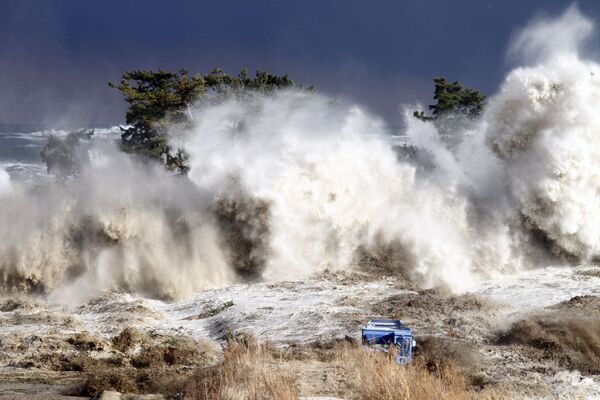
This picture taken by Sadatsugu Tomizawa shows tsunami waves hitting the coast of Minamisoma in Fukushima prefecture on 11 March 2010.
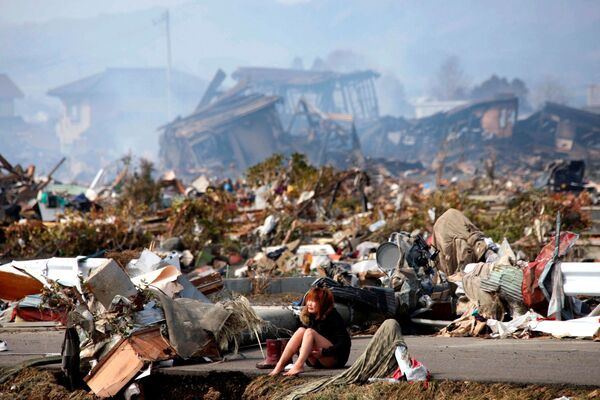
A woman sits on a road and cries in the destroyed city of Natori, Miyagi Prefecture in northern Japan 13 March 2011, after a massive earthquake and tsunami.
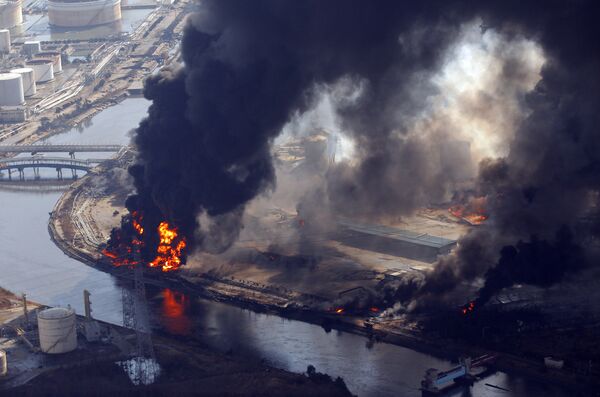
3/13
© AP Photo / Itsuo Inouye
Flames engulf buildings in an industrial complex in Sendai, northern Japan, Saturday, 12 March 2011. Japan launched a huge military rescue operation Saturday after a giant, quake-fed tsunami killed hundreds of people and turned the northeastern coast into a swampy wasteland, while authorities braced for a possible meltdown at a nuclear reactor.
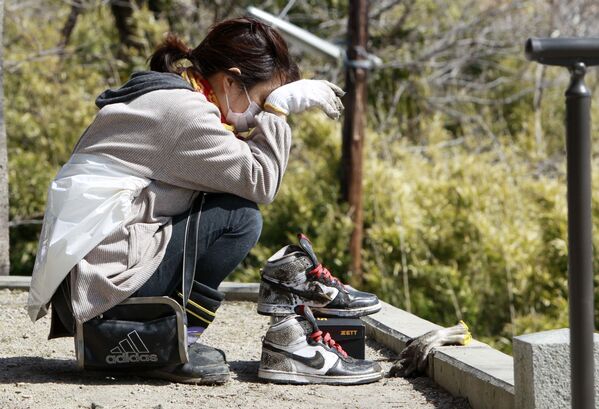
4/13
© AP Photo / Mark Baker
A resident of the seaside town of Toyama, northern Japan, wipes her eyes as she takes a break from clearing debris from her home on Monday, 14 March 2011, three days after a giant quake-fed tsunami struck the country's northeastern coast.
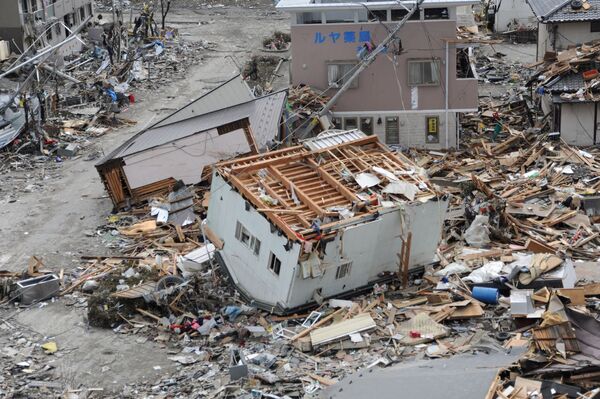
An upended house is seen among the debris in Ofunato, Iwate Prefecture, in this US Navy handout photo dated 15 March 2011.
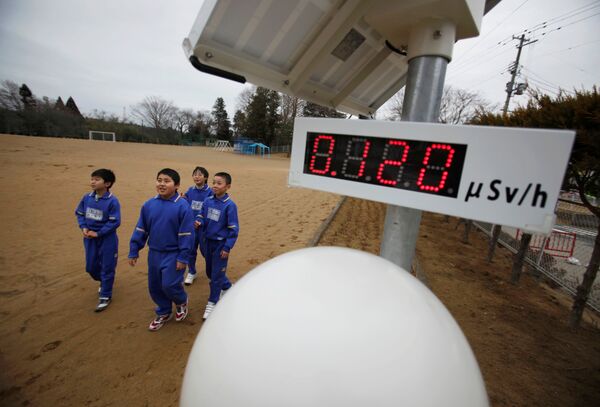
Students walk near a Geiger counter, measuring a radiation level of 0.12 microsieverts per hour, at Omika Elementary School, about 21 km from the crippled Fukushima Daiichi nuclear power plant, in Minamisoma, Fukushima prefecture, 8 March 2012, just three days before the first anniversary of the tsunami.
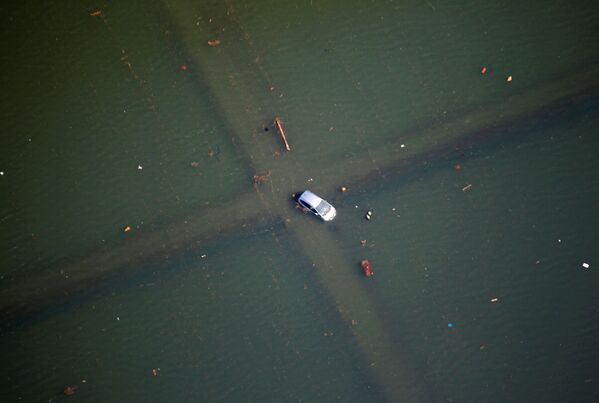
A half-submerged vehicle is seen at a crossroad after an earthquake and tsunami in Sendai, northeastern Japan, 12 March 2011.
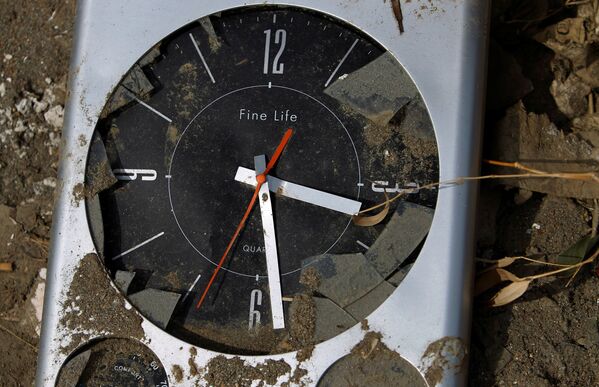
A clock that stopped as the 11 March tsunami hit the area is seen in Rikuzentakata, Iwate prefecture, 7 April 2011.
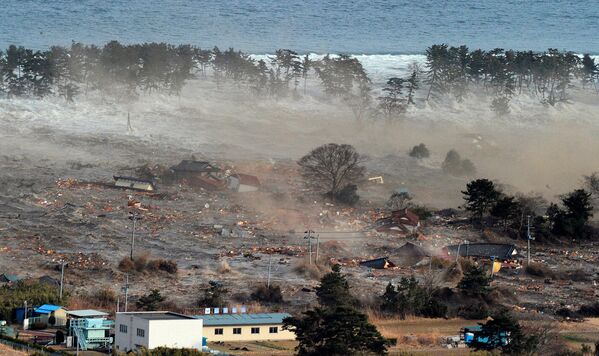
Houses are swept by a tsunami in Natori City in northeastern Japan 11 March 2011, in this photo taken by Kyodo.
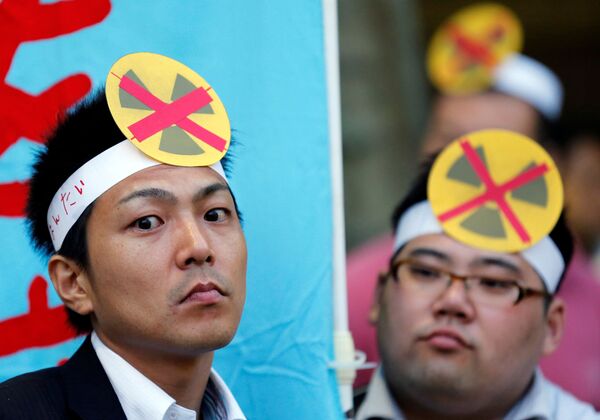
Protesters wear anti-nuclear headbands at a rally against possibly restarting nuclear reactors in Tokyo 6 June 2012.
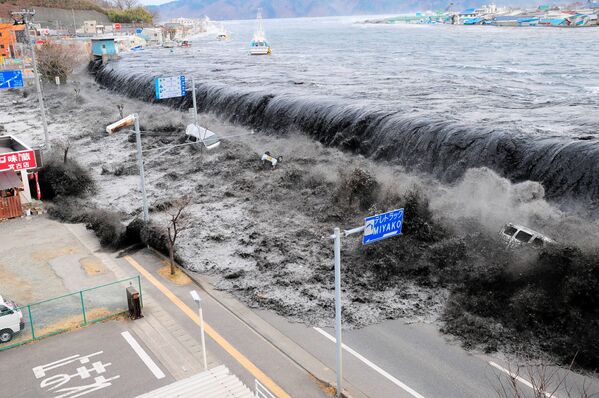
A wave from the Heigawa estuary in Iwate Prefecture approaches Miyako City after the 8.9 magnitude earthquake struck the area on 11 March 2011.
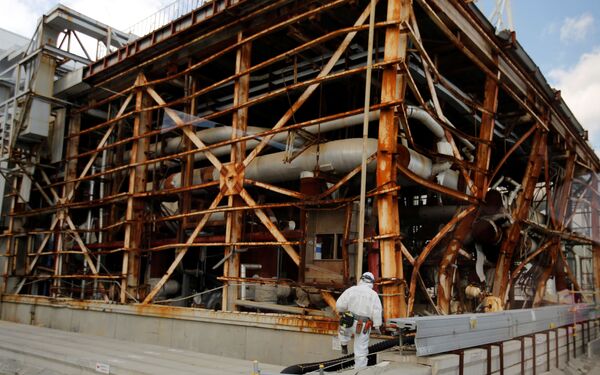
A worker, wearing protective suit and mask, is seen from a bus near the No 3 Reactor building at Tokyo Electric Power Co's (TEPCO) tsunami-crippled Fukushima Daiichi nuclear power plant in Okuma town, Fukushima prefecture, Japan 10 February 2016.
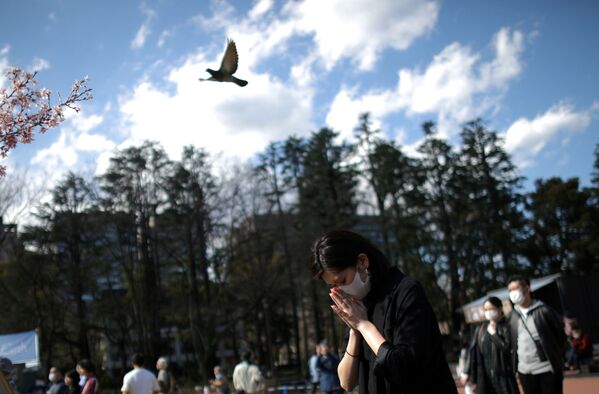
A woman wearing a protective face mask to guard against the coronavirus, prays during a memorial service at Hibiya Park in Tokyo, Japan, on 11 March 2020, to mark the ninth anniversary of the earthquake and tsunami that killed thousands and started a nuclear crisis.

